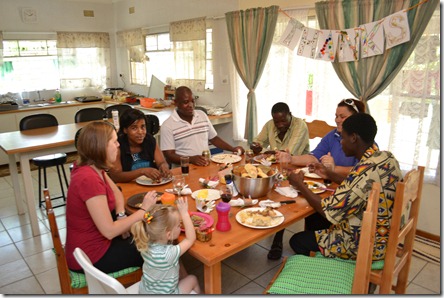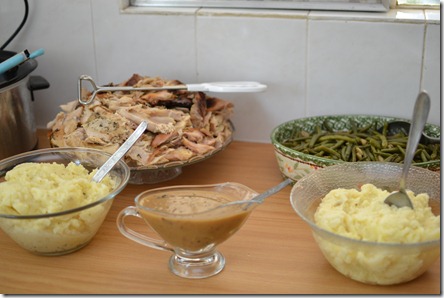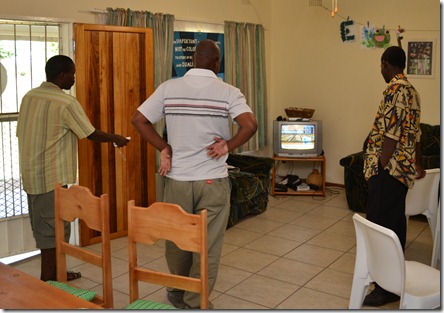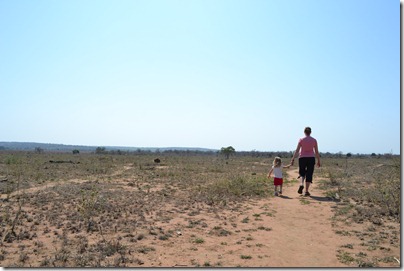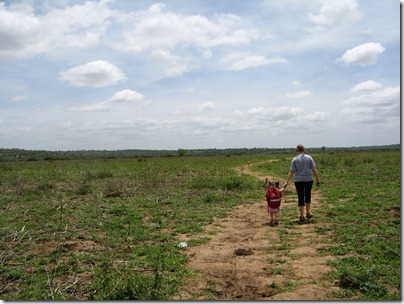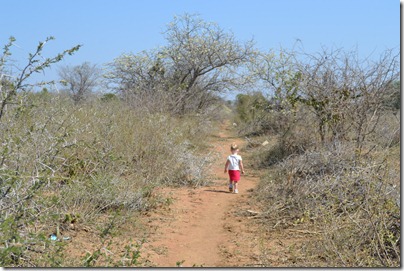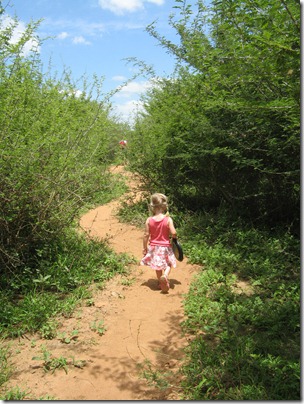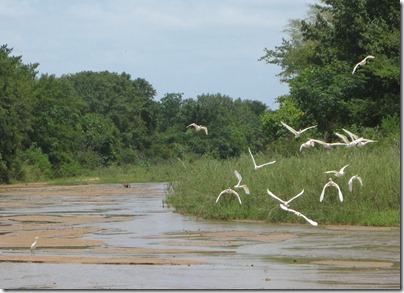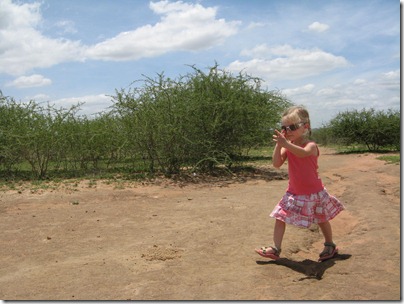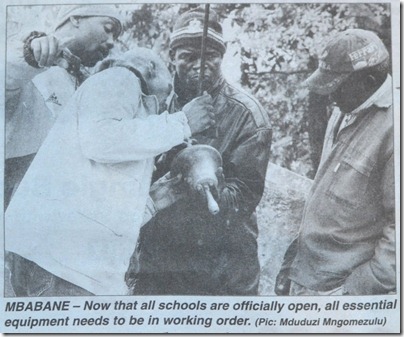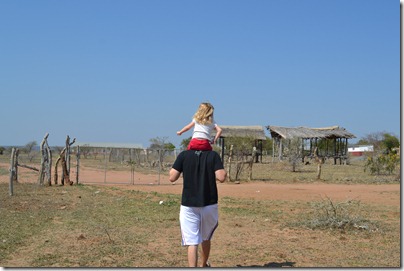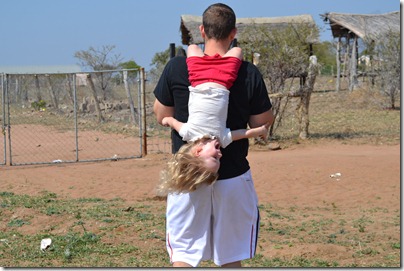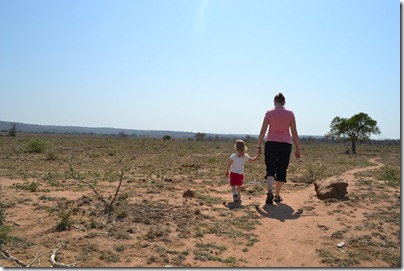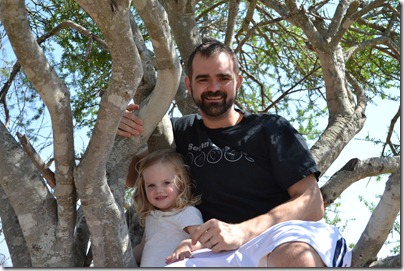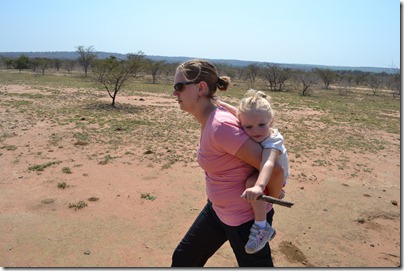Updated: 26 October 2013
Having lived in Swaziland 2.5 years now and gone through the process twice, I can definitively say that the most annoying, frustrating, time-consuming, expensive thing we have had to deal with is obtaining our Temporary Residence Permit. This TRP (as it is often called) is basically a visa / work permit that allows a person to remain in Swaziland for an extended period of time. I figured if explaining the process a bit could save at least one person some headaches, then it was worth it… so, here are a few notes on what we learned during the process.
[SIDE NOTE: Apart from obtaining an TRP, there are a few things you can do to stay in the country if you are American (different countries have different rules, so I can only comment on my experience). First, upon entering Swaziland, the stamp they give you at the border is good for 30 days in country. Note, that this is not mentioned anywhere, but it is common knowledge. I have been told that if you stay in the country with just your passport stamp for more than 30 days, then the fees can be pretty intense: as in a couple hundred emalangeni every day you are over. So, if you want to stay current, you can always just cross the border at least once a month. Of course that is time-consuming and requires regular planning. The other option is to go to the government offices and get an extension of days. If you bring your passport in, they will give you a new stamp. But, this can only be done twice a year, so be selective on when you employ this.]
To get your Temporary Residency Permit, the first thing you need to do is visit the government offices. This is a shabby building on the same side of town as Mbabane Government Hospital (you can see its exact location here). When you come in you can wait and talk to a person at the front desk if you need guidance, or just walk on past and start the process. To get where you are going, walk straight ahead past entryway desk and the staircase, you will come to crowded dimly lit hallway on the ground floor. Everything you need for the process is here in this hallway (although if you need the bathroom, I recommend you go up a flight to the second floor). To the right you will find the offices that handle all actual TRP paperwork; to the left you will find the file room and record room
The first place you need to go is the office that actually takes care of TRPs. In my experience, this has been handled in room 114 or 117 (right side of the hallway), although it does change. If you haven’t already picked up the paperwork you will need to do that first. Unfortunately you can’t download the forms online (as far as I know) and thus have to make a special trip to even start the process. (I have uploaded digital copies at the end of this so you can get a feel for the paperwork involved, but please note these are not official.) At the TRP offices, you will get a list of application requirements as well as the actual forms. For missionaries and those looking to be employed while in country you will need to pick up Form 3 (Entry Permit Application), Medical Certificates for all who are applying, and a Dependant Form (form 6) for everyone besides the primary applicant.
Here is what the application requirements actually list for each category:
- Business Person
- Complete application form (Form 3 – Entry Permit Application)
- Memorandum of Association
- Two passport sized photos
- Covering letter of application
- Original police clearance from country of origin (internationally recognized)
- Lease Agreement
- Medical Certificate
- Certificate of Incorporation Form J and Form C
- Passport Copy
- Employees
- Complete application form (Form 3)
- Two passport sized photos
- Covering letter of application from employer
- Proof of advert of post (full page)
- Original police clearance from country of origin (internationally recognized)
- Qualification Certificates (copy)
- Medical Certificate
- Passport Copy
- Special Pass
- Complete application form (Form 10)
- Copy of Recent Appeal
- Application letter
- Two photos
- passport copies
- Dependants
- Complete application form (Form 6)
- Copy of residence status documents (Guardian)
- Two passport sized photos
- Covering letter of application from guardian
- Copy of marriage certificate (for spouse) or birth certificate (for child)
- Original police clearance from country of origin (for those over 18)
- Medical Certificate
- PIN number if Guardian is Swazi
- Passport Copy
- Students
- Complete application form (Form 8)
- Two passport sized photos
- Letter from school/institution
- Support letter from ministry of education
- Original police clearance from country of origin (internationally recognized)
- Medical Certificate
- Passport Copy
- Visitor’s Pass
- Complete application form (Form 10)
- Two passport sized photos
- Letter of Application from Host
- Residence status document of Host (e.g. Temporary Residence Permit)
- Medical Certificate
- Passport Copy
- NOTE: All copies must be certified
Since we applied for the Employee / Dependant permits, those are the only ones I can talk about. But, here are a few explanatory notes about those requirements that may be helpful:
- Photos – these don’t require the same attention to detail that actual passport photos demand. Ours were taken against a grimy, green wall by a market merchant for E30. While in line, I even saw people who simply printed off small black and white photos from a digital camera on a regular printer.
- Employer Cover Letter – This is basically just a restatement of all the information contained in the actual application. Your employer is basically just explaining what you will do here, how you will be compensated and why they aren’t hiring a Swazi. I have found they can be pretty anal about this. Make sure it is properly addressed to the Chief Immigration Officer and that it includes your name in a subject line.
- Dependant Cover Letter – This comes from the main applicant and you need a seperate letter for each dependant you are applying for.
- Proof of advert of post – They are again wanting to make sure you aren’t taking a job that a Swazi could be doing. Your employer is supposed to provide proof that they actually advertized this job rather than just offering it to a foreign national. I don’t know how this works for most people, but since Beth and I were coming as Missionaries, we were able to ignore this requirement.
- Police Clearance – There is certainly some flexibility in this requirement. If you want the official answer, this is supposed to be your Federal Background Check. In order to get this, you have to get your finger prints taken and then have those submitted to the FBI. They will then send you your results. If you are not already in Swaziland, then by all means, visit your local police station and get this taken care of. If you are in Swaziland already, you can arrange it with the Regional Security Officer at the US Embassy to take your fingerprints, but it will be up to you to actually submit them and get the results. However, for ours, we submitted a state background check which was available online and they accepted it. I wouldn’t count of that working all the time, but for us it did and were are very grateful.
- Qualification Certificates – Again, because we applied as Missionaries, we did not have to provide these. But, the idea is that if the job being hired for requires a bachelor’s degree, then you have to prove you have a bachelor’s degree. Basically you need a copy of your diploma or any industry certificates that you claim to possess as part of your terms of employment.
- Medical Certificate – This is just a super simple form you pick up and have your doctor fill out. Make sure it is not only signed, but has a stamp from the clinic.
- Document copies (Passport, Marriage / Birth Certificate) – In Swaziland, certified copies are very similar to notarization. Basically to get a copy certified, you simply take the photocopy along with the original to your local police station. They check to make sure the original matches the copy and then they stamp it and sign off on it. My local police station did this free of charge in about 5 minutes.
Once you have all your forms filled out, your copies certified, your photos taken, and your cover letter written, you are ready to turn in your application. This means another trip to the TRP offices. I have found the best time to go is before noon. When you turn in your application they give all your forms a quick look over, then give you a certificate of application. This certificate gets you an additional 30 days in country without having to restamp your passport. On this form is a reference number that you will later use check on the status of your application. This can take anywhere from 15 minutes to an hour depending on the mood of the clerk and how many people are in line. Even after having gone through the process several times with different people, I still find that at least half the time my application is rejected for some reason.
Your application is then submitted to an immigration board who will ultimately decide whether or not to approve your application. I was told this takes between two and three weeks and was given a number to call to check on it. At the time of this writing, the number was +268.2404.2941. It actually took me 2.5 weeks for mine to be approved.
The final step is actually paying for and picking up your permit (did I mention this process is super expensive?). Again, I would recommend going early – this part of the process is by far the longest.
First thing you are going to do is return to the TRP office where they check to make sure you really were approved. Be sure to bring in your application form you got a couple weeks earlier. They will notate that confirmation form and then send you to get your actual file. For this, head to the record room (101) at the very end of the hall to the left. There will be a long line, but you can skip it. The line is for paying and you will soon join it. In the record room you will show them your paperwork and hand your passport(s) and they will match it to your actual files (you actually have to part with your passports to get the process done; it is a bit scary when you see their filing system, but I haven’t heard of anyone having problems yet).
At this point you are ready to join the long line to pay (did I mention it was expensive?) For us, we paid E2,400 for my TRP and then E1,800 each for Beth and the kids for their dependant permits. Based on the exchange rates at the time (E10/$1) that cost us about $780!
After your fees are paid, you are ready to actually get your TRP. The last several times I have gone to help people, this means going down to the Chief Immigration Officer in Rm 119. You will sign some paperwork, get your passports stamped and geta print off of the actual entry permit. Once you get this completed, you are officially a temporary resident of Swaziland.
Looking back on this whole process and talking to others, there are a couple things I learned that I wish I knew ahead of time:
- There are a lot of things that are much easier to get done in the States than they are to get done in Swaziland. The Police Clearance is a perfect example. Do your homework and come prepared.
- You don’t have to be present to apply for a TRP. If someone has your passport they can turn in the documents and pick up the entry permit for you.
- The typical TRP is issued for two years, but if the cost is too much, you can only apply for 12 or even 6 months (but of course then you have to go back through the process again).
- While not necessary, I took a person with me who spoke siSwati. It helped to have someone who could talk more easily with the officials and interpret the situation from a local context.
- You can request a fee waiver, but that must be submitted with your initial application. If you are coming as a missionary / volunteer / etc. it is worth a shot, but I haven’t heard of it being successful recently.
- Plan on this taking a long time. We have had staff members who have had to dedicate entire days to each of these steps. One volunteer had everything complete, and went all the way through the pick up process only to find out the person who stamps the passports wasn’t there and she had to come back again later. Call ahead before you go in to make sure that not only your application is ready, but that all the people are there who need to be there. Again, I recommend going in as early in the day as possible.
- There are a lot of specific things needed, but in my experience with the right explanation, there is also a fair bit of flexibility (i.e. with police clearances, documentation, etc.).
- The Dependant application asks for the permit number of the primary applicant, but you can submit all applications together.
- Treat your actual TRP paperwork like gold. It is essential you have the original when you reapply. If you lose it, it will delay any subsequent applications and you will have to pay a hefty fee.
Finally, for your (possible) benefit, I wanted to upload digital copies of the applications and cover so you can get a feel for what to expect.
Renewal Process:
Compared with the original application process, getting a renewal is much easier. All you need to do is have a renewal letter for each person — it needs to be from the employer for regular permits and from the main applicant for dependants. You will also need certified copies of everyone’s passport, new pictures, and the original TRP documents (remember how I said it was essential to hang on to it!) Besides less strict application requirements, the process is exactly the same.
Visitor Permits:
While working with a short term volunteer, we found that there is another option for staying in the country besides a TRP, crossing the border, or getting an extension of days. Apparently, Swaziland has something called a “Visitor’s Permit” which allows you to be in the country for up to six months. To get this, you have to have a letter of invite from a Swazi citizen and go to the Ministry of Home Affairs (same place mentioned above) along with the the national ID of the person sponsoring you and your passport. The fees are set at E100/mo. While this option is a bit easier to go through, you have to make sure the person visiting is just here for a short time and has a good story for why they are staying with a Swazi. It is actually the Swazi who makes the application. We tried this route but had the application rejected because we mentioned volunteering in the cover letter.
Online Tools
(updated: 20 May 2013):
While browsing the Swazi Government website, I noticed they have recently put up some new information that might be helpful. Unfortunately, as of today, there are still some significant issues with what they have posted. But, I will provided the links in case they are helpful:
- Ministry of Home Affairs – main page, but not all the links work and it is a bit disorganized.
- Permits – There is information about different types of residence/visitor permits, but unfortunately the links all go to South African websites.
- Forms – Here they officially have posted many of the forms I included above. Of particular interested is the Payment Schedule.
